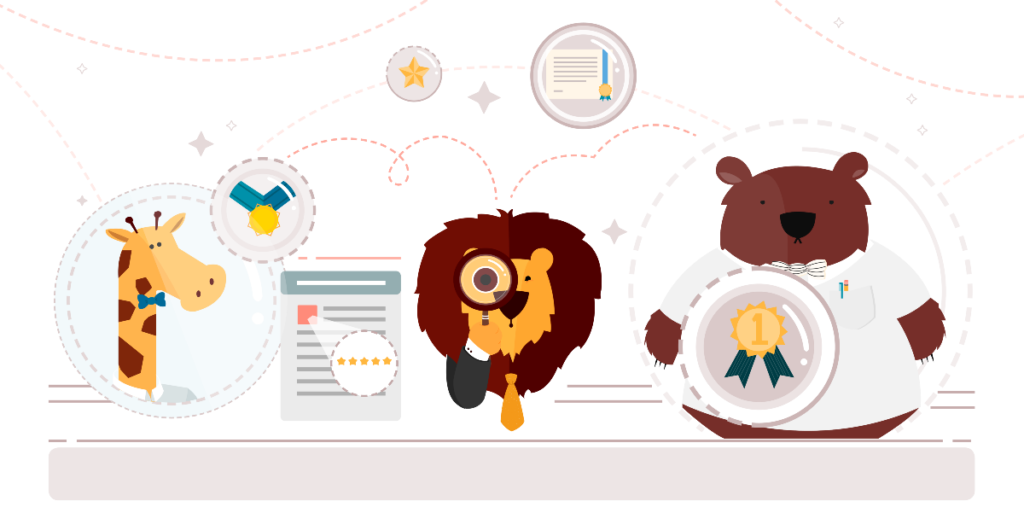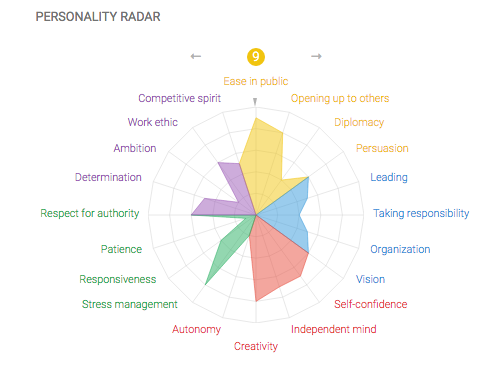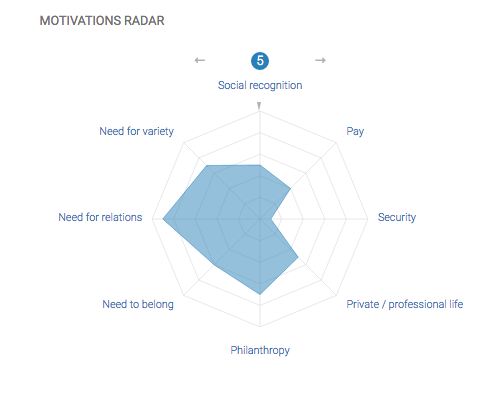Magical Beasts and how to hire them.

Hiring for your start up? Become a hiring wizard with this free webinar and these recruiting tips.
If you are an entrepreneur you want nothing short of mystical candidates. Individuals that make something out of nothing and can conjure a lead out of thin air. Whether your company has been around for one month or one hundred years, when you’re expanding into a new market, you have to hire with a start-up mentality. Hiring is an incredible opportunity, but it’s also a risk. As a start-up, you have fewer resources, so if a new hire doesn’t work out, it causes significant burden to the rest of the team. And if you’re managing a new team from a distance, the stakes are even higher. No pressure, but who you hire can make or break your start-up’s success!
If you want to learn all the ins and outs of recruiting for small companies and large companies alike tune into our free webinar on December 14th. Not only will you leave with valuable knowledge on how to assess your candidates soft skills & hard skills but we will also delve into the interview process and how to detect what is beyond the curtain. A professional recruiter give you her insights and you will leave with the tools to play psychologist and truly choose a candidate for the long haul.
But wait there is more..
In the mean time, lets discuss the traits you should look for in a candidate so you can land the perfect person for your company.

Interviewing is obviously the biggest tool recruiters currently use to find the right fit for a team. Interviewing candidates is an art, both from the interviewer and the interviewee standpoints. Some candidates are great at selling themselves, others more reserved. It could be they grew up in a culture where self-promotion was considered a vice, not a virtue, and not indicative of how well they’d perform in a role. Some recruiters are better than others at bringing out the best in candidates in a conversation.
So how do you know if a candidate will fly or flounder in your company’s entrepreneurial culture? Look for these traits:
- Accountability: Determine how the candidate owns his or her work. Notice if he or she answers questions with “I” or “We”. It’s imperative in a start-up that employees take full responsibility for their roles, tasks and actions.
- Self-motivation: In a start-up you don’t have as much time for rah-rah speeches and trying to light a fire under your team. You need an employee who has an intrinsic desire to work hard and perform well.
- Flexibility: One day the goal might be sales, the next traffic. Mission statements and organization charts evolve quickly. To succeed in a start-up, one must be able to adapt to change.
- Skill/Education: Certainly, having the right skills and education for a role brings results. The closer a candidate matches the expertise you need the less time they’ll need to be trained.
- Passion: Believing in the mission of your company and having a passion for the work you’re doing is key for start-up company employees. It’s what will keep them going in the middle of the night before a big launch.
- Resourceful: An ideal start-up employee knows how to solve problems, often with little resources. Like business Macgyvers, they can make big things happen with Excel and a couple of paper clips.
You don’t have to rely on hours of subjective interviews to figure out if your candidate is “the one.” Identifying a candidate’s personality traits objectively can be done using a people analytics tool like the Talentobe Manager. Here’s an example profile of a real person who is currently successful at a start-up. As you can see, with one glance you can identify areas of strength to match the profile you need.


Talentobe further identifies her as a great start-up candidate with these insights:
Creativity 8 / 10: She likes to be innovative and find original solutions. She is not very conventional.
Stress Management 8 / 10: She finds it easy to keep her cool in stressful situations. She performs well under pressure.
Motivations — Security 1 / 10: She does not need security in her work; she likes to take risks.
Motivation — Need for Relations 9 / 10: She is motivated by teamwork and relations with others are very important.
The most important asset a start-up has is its people. When reviewing your candidates, identifying their personality traits is even more important than evaluating their skills. With the right personality traits, an employee can gain experience and move up the ladder, developing into exactly the long-term magical beast you always dreamed of.
Curious to find out if your candidates have what it takes? Start your free trial today and test your candidate quickly & effectively for free!
Let’s face it, recruiting can be difficult. Let us help.
Join our free webinar to get in on the secrets of hiring for your start up
Are you in the wrong job?

How using your personality strengths leads to job satisfaction.
You have a job, but is it really the job you want?
Sure, you may get along with your coworkers and feel fulfilled by your work at least some of the time, but you still can’t resist checking out job posting sites or asking around about potential openings at happy hour.
You are not alone. It’s easier than ever to apply for jobs, network with companies and recruiters, and work from the comfort of home or your local coffee shop — meaning that workers are changing jobs more often than ever.
According to the Society of Human Resource Management, about one-third of new hires quit their jobs after six months, and CareerBuilder reports that 32 percent of employers expect their employees to job hop.
Some who leave jobs find that the grass isn’t always greener on the other side, beginning another cycle of job searching. However, a new wave of data-driven hiring is making it easier for companies and employees to find long-term matches.
If the employee’s personality fits with the company, chances are the employee will stay longer. And, companies are using personality data to understand the roots of human behavior and how to shape their businesses accordingly — a strategy known as people analytics.
They know your buying habits and can compare them to similar consumers to suggest new products for you, predict future behavior, or improve customer service. Entrepreneur reports that the Container Store is doing just that by using wearable technology to track employee interactions with customers on the sales floor.
People analytics applies to hiring, too. Search committees and sorting through endless stacks of resumes to arbitrarily pick a candidate may soon become a thing of the past in favor of data-driven placements that match a candidate’s personality with the open position and company’s culture.
There are many options out there when it comes to online personality assessments, but not all are created equally. Talentobe’s personality test was specifically designed for a professional setting. The questions are no longer than a Tweet and each has only two possible answers. They fly by and the entire thing can be completed in just a few minutes.
Are you a leader or a follower? Are you open to new assignments and challenges? How comfortable are you speaking in public and interacting with others you don’t know? The psychometric test gives you answers to those questions and uses a scientific algorithm to provide you with the career advice you have been yearning for.
The answers from your personality test can be shared on social media or with recruiters who can place you into jobs that fit your skill set and puts you on the path toward a long-term career in that field — minimizing the potential that you’ll be job hunting again in six months or a year.
Before you hit the job board next time, consider taking a personality test to find a long-term career that motivates you and uses your strongest traits to your advantage.
The Importance of Company Culture and How to Hire the Right Fit

6 tips on hiring employees who wont run for the door.
Everyone likes to wake up wanting to go to work! And every company wants their employees to be motivated, productive and loyal. One of the biggest factors in fostering a hard-working, happy team is by not only creating a vibrant company culture, but also making sure new employees fit into your company’s unique style. Whether your company is a more casual, “8–5”, family friendly environment, or a high pressure, career lifestyle, competitive, highly results-oriented workplace, using smart recruiting tools like predictive analytics to evaluate candidates will help ensure the perfect match.
Programs that foster company culture like flex time, happy hours, volunteer work, recognition opportunities, cross departmental “lunch and learn” events, competitive pay structures and opportunities for bonuses all make employees less likely to take calls from other companies.

“Culture is the number one contributing factor to every single aspect of the employment relationship — from both the employee and company perspective,” says Amber Rhoton, Owner/President of Owner and Chief HR Advisor for Amplified HR. “A strong culture is the fastest way to weed out under-performers and cultivate superstars.”
Here’s how to find the perfect match for your company’s culture and avoid costly hiring mistakes. Job searchers, listen up to increase your chances of getting hired!
- Ask candidates to take a personality test such as Talentobe’s which in a few clicks provides a comparison of the candidate to your current workforce and is designed to allow you to get an idea of who a person really is and what motivates him or her.
- Have multiple people speak with the candidate to see how well he or she meshes with different personalities. Also, meet a candidate on several occasions on different days and times to gauge the consistency of the fit.
- Watch how a candidate interacts with the receptionist. It may seem minor, but you want to hire a genuinely nice person. If someone is cold or rude to the person they are first meeting in the lobby, it’s not a good sign.
- Check references, and not just the ones a candidate gives you. Dig a little deeper and find an objective opinion on someone’s past performance and potential fit. It’s hard work but will pay off to avoid hiring the wrong person.
Observe how smoothly offer negotiations go. If a candidate negotiates heavily and isn’t easy to work with during that process, it’s a sign they aren’t the right person for the job. - Ask the hard questions. If you know your company’s culture requires night and weekend work, find out how a candidate will handle that. Be transparent on all the down sides of a position and when someone is still excited to join, you’ll know they’re right for the role.
“Match your applicants with your culture and the rest will fall into place,” says Rhoton. It’s way more important, in my opinion, than skill set or experience.”
By ensuring your new hires match your company’s dynamic, you’ll not only reduce your turnover but also increase engagement and overall performance of the entire team. And with today’s easy-to-use candidate-culture matching technology, there’s no excuse not to!



